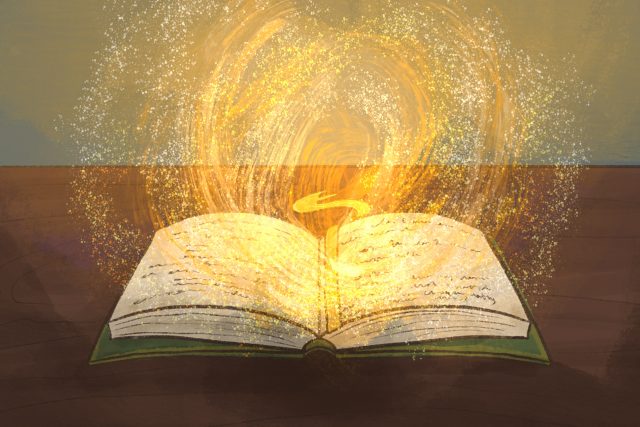[ad_1]
When I was in 7th grade, I lied and said I liked “Pride and Prejudice.”
I was secretly unimpressed, but I felt enough social pressure to appreciate perennially beloved classics to convince myself that I was smart enough to “get” the novel (I wasn’t). For a long time afterward, I kept a mental rant stored in my back pocket about how classics are boring, stuffy and way too long.
But in the past year or two, the strangest thing has happened to me: I found myself reading and — against all odds — actually enjoying books written in the 1800s. I’m honestly not sure what flipped the switch for me: better reading comprehension, more brain cells or accidentally becoming a pretentious, pseudo-intellectual college kid? I can’t be sure of the exact cause, but I suddenly felt way more inclined to understand life instead of just living it — and I think reading had a lot to do with it.
The books you consume are like thin layers of watercolor paint that gently seep into the canvas of your mind and color everything with a subtle tint. They change the way you look at life. In a world of muddled browns and tactile reds, where we judge a person by their political leanings, there’s always someone dying somewhere in the world and everyone is anxious to not offend anyone else — a headache by any standard — classics are like a puff of light blue smoke. They are the lingering remnants of an old world that somehow seems quieter, simpler and a bit more grounded than our current, overstimulated existence.
There is something undeniably refreshing about these literary time capsules. It’s a pure, unedited glimpse into an older generation, people who were fundamentally just like us, albeit in a completely different context. It’s easy to relegate people who lived a long time ago into a totally different category — like when you wave away your grandma’s unabashed racism with an awkward laugh and a “she’s from a different era.” We so easily accept that so much of human belief and behavior is a result of the environment we were born into, so it’s not that hard to imagine that some future generation will stroll down the block and condemn everything we ever stood for as backward, ridiculous and possibly even pure evil. Some people might take this as proof that nothing matters and conclude that all our attempts at any real meaning are ultimately futile, but I just don’t think that is true.
For all our generational and cultural differences, certain values and struggles still ring true. They strike a resonant chord that echoes into the present, even if our current social consciousness claims to have moved on from such archaic ideas. When Jane Eyre suppresses her passion to preserve her integrity, we can’t help but marvel at her strength of character — even as we live in a culture that would probably criticize her for “caving” to the oppressive social constructs of her day. When Mr. Knightley calls Emma out for being selfish and she actually hears it and apologizes, we intuitively know it’s beautiful to have a relationship that can withstand truth and confrontation — even if we ourselves tend to give up on our friendships after the first bout of relational conflict. When Oscar Wilde writes, “Women defend themselves by attacking, just as they attack by sudden and strange surrenders.” I can’t help but laugh and know exactly what he’s talking about — though I suppose it isn’t politically correct to do so.
What we often dismiss as obsolete is still very much human, and though the societal definitions of “good” and “bad” shift every couple of decades, we have so much to learn from the people who came before us. What did they make of the mystery that we call “life?” How did they understand it, and what about the human experience is universal, transcending time and circumstance? These are the wonderings that fill my brain when I read classics.
A funny result of it all is that I feel more connected to humanity as a whole, all 117 billion of us who have ever walked and lived and breathed on this earth. We all want to love and be loved, to find purpose and meaning, to wrestle against the uglier side of ourselves and emerge victorious, someway, somehow. We want so many things, and we’ll do so much and travel so far to find what we’re looking for.
It’s a breath of fresh, crisp air to read of the same human endeavor, but in such a different font — a different way of thinking. Time passes, and it’s funny and beautiful and exciting when old things have a chance to be wonderfully new again.
Daily Arts Writer Pauline Kim can be reached at kpauline@umich.edu.
Related articles
[ad_2]
Source link











